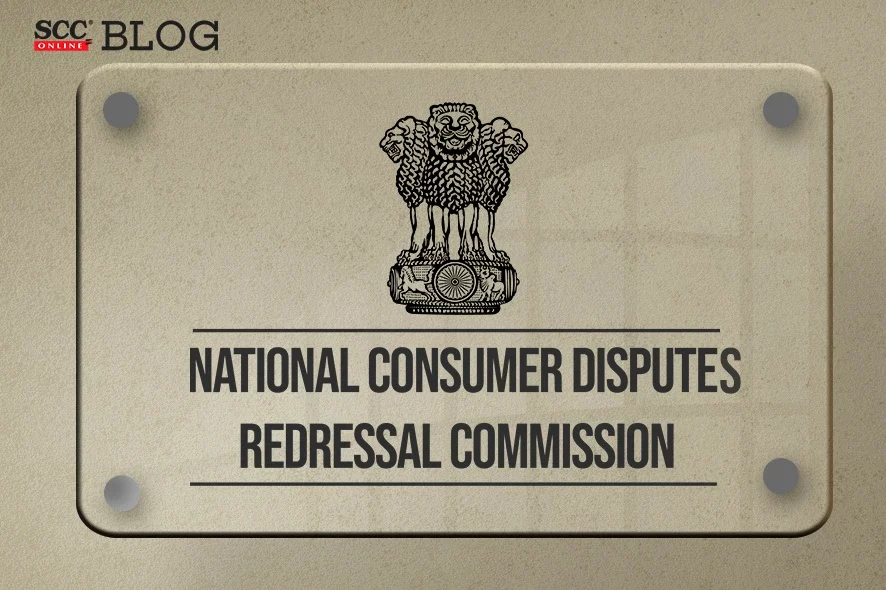National Consumer Disputes Redressal Commission: In a bunch of consumer complaints against Macrotech Developers for delay in delivery of possession and deficiencies in amenities allegedly promised, A.P. Sahi, President highlighted the delay in filing the complaints and was not convinced regarding the deficiencies so raised based on a letter received by the Housing Society from an Architect.
Factual Matrix
Among one of the matters whose facts were picked by the Court, the two complainants were allottees of a flat in the building named “Roma (Tower-C)” at project named “Lodha Florenza” developed by M/s Macrotech Developers Ltd. With estimated sale consideration of Rs 3,73,03,902. An advertisement was made, and agreement was entered on 6-02-2021 with a promise to deliver the same approximately by 30-06-2016. The offer of possession was made on 19-01-2018 after a delay of more than a year and certain deficiencies were not rectified as per the complainants, which led them to serve a legal notice on the Macrotech Developers on 20-12-2021. It was alleged that the cause of action arose on 19-11-2021 when after an enquiry, they were informed by the society formed for maintaining the tenements that the Architect of the Society had pointed out the Developers’ failure to deliver the amenities, which amounted to an unfair trade practice and deficiency in service.
The complainants mainly complained of delayed delivery of possessions and not providing the amenities promised. The Developers contended that the possession was offered on 19-01-2018 and the cause of action for filing the complaint expired on 18-01-2020, and the instant complaint being filed in April 2022 was hopelessly time barred and deserved to be rejected as per Section 69 of the Consumer Protection Act, 2019.
Commission’s Analysis on Delay
The Commission acknowledged that the offer of possession was made on 19-01-2018, which, counted after the period provided in the agreement reflected a delay. However, it was not disputed that the amount of rental set off was received by the complainant. Following the decision in Jignya Mittal v. Macrotech Developers Ltd., 2022 SCC OnLine NCDRC 98, the Court decided the issue of limitation against the complainant.
Regarding deficiencies, the Commission noted that the possession was taken on 19-01-2018 and no defects in amenities were pointed out by the complainant or even the housing society. Since the complainants stated about obtaining the information deficiencies vide letter sent by the Architect to the housing society on 19-11-2021, the Commission accepted the Developer’s contention that there was no patent defect in the building or the flat, and if there was any defect visible, the same would have been pointed out at the time of possession or in a reasonable proximity of time thereafter.
The Commission accepted the submission on behalf of the Developers that the defects highlighted by the Architect were not hidden to not be discovered while taking possession. It was maintained that all the alleged deficiencies which were otherwise non-existent could have been pointed out at the outset. The Commission also highlighted that the housing society which the complainants were members of was not arrayed as a party in the instant matter, and the deficiency could not be verified from the Society, and there was no affidavit of evidence of the Architect indicating the said deficiency except for the information received by the Housing Society. The Commission expressed that “the said deficiency or its verification to this complaint in the above circumstances, cannot be verified when there is an affidavit of denial by the Opposite Party.”
The Commission kept it open for the complainant to approach the Housing Society for redressal of such grievances, and for the Housing Society to take up such issues for redressal as available in law. The Commission also directed the Developers to answer the complaint raised by the Society together with evidence and provide redressal, and in case of failure, it was open for the Society to seek remedies as provided in the terms of the agreement and before the appropriate forum.
Scrutinizing the issue of limitation, the Commission noted that it was almost 3 years on 20-12-2021 since the legal notice was sent in spite of the fact that the deficiency alleged was not visible, and the aforesaid letter of the Architect’s Certificate also came almost after 3 years of taking the possession, and otherwise, there was no document on record to infer the promise regarding deficiency flagged. However, the Commission settled that “if any other deficiencies continue to persist, then such continuing deficiencies may, if established, give a continuing cause of action to the complainant to maintain this complaint which cannot be defeated on the ground that the cause of action has expired long back. However, the complaint with regard to delay in possession is certainly barred by limitation as possession has been taken in January 2018 and rental offset has been accepted by the complainant without any demur.”
Therefore, the Commission found the complaints not entertainable and disposed of them accordingly. The rest of the bunch of complaints involved the common Builder Buyer Agreement based on the same Architect’s letter having similar dates, thus, the Commission disposed of the matter for all those complaints.
[Ashish Gupta v. Macrotech Developers Ltd., 2023 SCC OnLine NCDRC 997, Order dated 24-11-2023]
Advocates who appeared in this case :
For Complainant: Advocate Akriti Aditya Manubarwala, Advocate Aditya Bharat Manubarwala
For Opposite Parties: Advocate Rahul Kripalani, Advocate Aditya Prap S. Chauhan, Advocate Surbhi Singh, Advocate Nitin Waghmare







